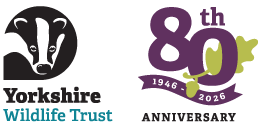Primarily focused around the Skerne Wetlands, near Driffield, the area that makes up the River Hull Headwaters is of national importance because of its unique flora and fauna and is a Site of Special Scientific Interest (SSSI).
In a partnership between Yorkshire Wildlife Trust, the Environment Agency, Natural England, East Yorkshire River Trust and Yorkshire Water, the latest section of the habitat creation project has seen a former fish farm, Copper Hall, integrated into the nature reserve.
Jon Traill, of Yorkshire Wildlife Trust, said the wetlands is already showing benefits with sightings of various species.
“Skerne Wetlands has undergone a major restoration programme to create a wetland paradise,” he said. “These sites lying along the crystal clear waters of the West Beck form a beautiful landscape in which to watch wildlife.
“The waters of this, the most northerly chalk stream in Britain, are a haven for charismatic species such as wild brown trout, grayling, brook lamprey, water vole and kingfisher.
“Bitterns have been attracted to the marginal reedbeds in winter and otters are found along the chalk stream and their tracks and signs are plentiful.
“In late summer, muddy edges attract wading birds such as green sandpipers, whilst dragonflies may be seen scattered amongst striking stands of purple loosestrife.”
The work to convert Copper Hall fish farm into the nature reserve included:
- Pulling out old bridges and replacing with bunds with flexi pipe outfalls to allow water levels to be controlled on site.
- Pulling back the banking to create larger ponds in times of high water.
- Creating narrow sections using coir logs and installing flow deflectors to vary flow and help remove silt deposits.
- Clearing overgrown willows to allow more light in and encourage the growth of characteristic chalk stream plants such as water crowfoot.
Richard Jennings, of the Environment Agency, said: “This project has been a great success. The latest phase of work on Copper Hall has been completed and will create a superb area for a range of wetland wildlife when it is fully vegetated.
“In addition this section of West Beck has been restored and will help the Agency and Natural England meet their targets for SSSI restoration.”
The River Hull Headwaters nature reserve was purchased in 2008 as two grass fields – Snakeholm Pastures, adjacent to the Wansford Bridge, some four miles southeast of Driffield, in the heart of East Yorkshire. Then, in 2011 Yorkshire Wildlife Trust bought what at the time was a commercial fish farm covering 33 hectares along with around a mile of the West Beck chalk stream.
This is now known as Skerne Wetlands and in 2014 the Trust completed the purchase of a further 12 hectares of land on the opposite side of the chalk stream to extend the nature reserve to more than 40 hectares and 2.4km (1.5 miles) of chalk stream.
The site complex of more than 80 former fish farm ponds is being developed into a mosaic of wetland habitat to include wet grassland, wet woodland, reedbed and open water. The partnership is aiming to secure further funding so that access to the Copper Hall section of the wetlands can be further improved.
